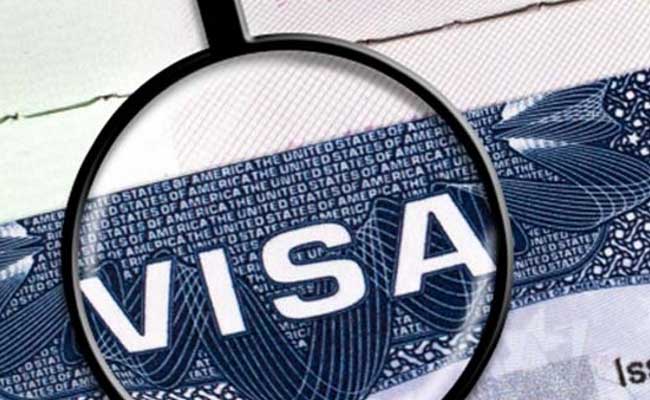“She’s a leukemia patient, and previously when she got a fever it caused her body’s cells to decline,” Wang said. “So when she got a fever again, we were all scared.”
Wang said that after a two-day wait, his sister and mother, who both had covid, were admitted Thursday to a hospital. His father, a mechanic who also tested positive, was taken to a quarantine center.
While the United States and many other places in Asia are returning to normal, China’s financial capital has descended into its deepest crisis of the pandemic. Shanghai authorities ordered all 26 million residents into strict home quarantine this week in two phases, prompting desperate calls from those suddenly unable to leave their homes for medical assistance. Normally crowded streets stood eerily empty, with some stretches of storefronts blocked off with barricades.
Shanghai health commission chief, Wu Jinglei, said at a news conference Thursday the city had 50 percent more ambulances on the road, with their workload tripled, but they could not meet all requests for medical help. The city recently turned its sprawling convention center into a 15,000-bed quarantine center.
Several reported deaths this week in Shanghai may have been preventable if the medical system hadn’t been so overloaded.
Shanghai reported 4,502 new covid cases on Friday, with authorities elsewhere in the country saying the outbreak had spread to 23 provinces.
Some factories in Shanghai — a major industrial hub — have suspended operation, while others are requiring workers to stay on site day and night to ensure production can continue.
Shanghai’s port, the world’s busiest, remained open, state media reported. There are concerns that any delays at the port could ripple outward across global supply chains.
The shutdown of the nation’s financial capital is a grim setback as China seeks a path out of the pandemic. Beijing officials had signaled that after two years of a “zero covid” strategy that weighed on the economy, they wanted to begin opening up. As a city full of business executives, Shanghai had been particularly eager for a return to normal.
Shanghai’s snapback to harsh lockdown reflects how officials still fear the consequences of a spiraling outbreak more than they desire the benefits of opening up. A number of municipal officials lost their jobs during the pandemic for outbreaks on their turf.
This week across Shanghai, locked down residents struggled to maintain their food stocks, with meal and grocery delivery services not working in many areas. Neighborhood committees tasked with ensuring residents had enough to eat, raced to shuttle bags of vegetables door-to-door.
Unable to leave their homes to walk them, dog owners agonized over what to do, with some putting their pets in diapers. Ahead of the lockdown, brawls erupted in supermarkets as residents competed for what was left on bare shelves.
China was accustomed to such chaotic scenes in smaller cities that went coronavirus outbreaks. But to see it play out in Shanghai, the nation’s most cosmopolitan city, was surreal and troubling for many.
John Lu, a 49-year-old Shanghai resident, said he’s spent the past week trying to make appointments for dialysis treatment for his 76-year-old father. Despite local authorities’ promises that they had secured a spot for his father on Friday, the hospital turned him down because his name was not on the list.
Lu said his father used to have three dialysis treatments a week, but has only received one this week. The hospital promised his father could go Saturday if he had a negative PCR test, and Lu hoped it would not be canceled.
“I can only think about when’s the next time,” Lu said. “At least each treatment could make him live for a few more days.”
The Shanghai Pudong district health commission announced on Thursday it had suspended the employment of a paramedic who refused to allow his ambulance’s defibrillator to be used on a man suffering a medical emergency, saying they needed to take another patient to the hospital. He was later pronounced dead.
“His heart has stopped!” a woman screamed at the paramedic in the ambulance, in a video widely circulated online in China. “You clearly have a defibrillator! Why don’t you lend it to us?”
Last week, a nurse in Shanghai died of an asthma attack after being refused admittance to her own hospital.
Shanghai’s secretary general Ma Chunlei said Thursday their preparations had been insufficient. “We sincerely accept your criticism and are working hard to improve ourselves,” he said at a news conference.
On Friday, the city announced new requirements for neighborhood officials to check on residents’ medical conditions and ensure those with urgent medical needs could access hospitals.
The citywide lockdown was originally supposed to last just four days for each half of the city, allowing for all residents to be covid-tested and infected individuals to be pulled into quarantine. But the lockdown has been extended for areas with positive cases.
Shanghai resident Jeff Zheng, 40, said his residential compound was put under two weeks of home quarantine on Wednesday after a positive case was discovered there. He said his sister, who is rehabilitating from a stroke, has hastily checked herself into a nursing home, fearful that she couldn’t manage by herself in a long lockdown.
“The lockdown came at an awkward time, just when I thought we were going to take a more open stance,” Zheng said. “I think our country will stay closed for much longer.”
Li reported from Seoul and Chiang from Taipei, Taiwan.
.png)










 English (United States) ·
English (United States) ·  Turkish (Turkey) ·
Turkish (Turkey) ·